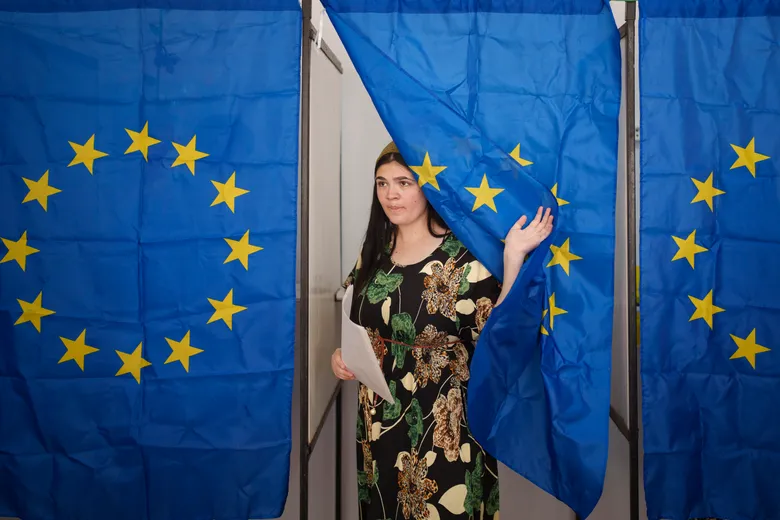The European elections brought notable victories for populist right parties in France, Germany, and Austria, sparking celebrations across the far-right spectrum. However, despite these gains, the pro-European centre has managed to retain its majority, ensuring a complex but stable political landscape for the EU.
Far Right Celebrations in Key EU Nations
France:
Marine Le Pen’s National Rally triumphed over Emmanuel Macron’s allies, prompting Macron to call for snap legislative elections. This significant victory marks a substantial shift in French politics.
Germany:
The far-right Alternative für Deutschland (AfD) surged, increasing its vote share from 11% in 2019 to 14.2%. Despite various scandals, including controversial remarks from its lead candidate, the AfD’s gains are a stark reminder of the growing populist sentiment in Germany.
Austria:
The far-right Freedom Party topped the polls with 25.7%, outpacing both the conservative People’s Party and the Social Democrats.
Italy:
Prime Minister Georgia Meloni’s Brothers of Italy secured 26%-30% of the vote, solidifying her position as a potential kingmaker in Italian politics.
The Netherlands:
Geert Wilders’ far-right party came second, capturing 17% of the vote. While it fell short of expectations, it remains a significant force in Dutch politics.
Hungary:
Viktor Orbán’s Fidesz party won with 43.7%, although this was lower than the predicted 50%. A new challenger party led by Péter Magyar took a surprising 30.7%.
Pro-European Centre Holds Steady
Despite the surge of the far right, pro-European parties remain in control. The centre-right European People’s Party (EPP) and its allies have maintained a majority, ensuring continuity and stability in EU lawmaking.
EPP’s Strong Performance:
The EPP topped polls in Spain and Poland, boosting the prospects of Ursula von der Leyen for a second term as European Commission President. The EPP, along with the Socialists and Democrats, the centrist Renew group, and the Greens, are projected to hold 462 of the 720 seats, a 64.1% share.
Socialist Gains:
Socialists led in Malta, Romania, and Sweden, maintaining their position as the second-largest group in the parliament.
Green Party Mixed Results:
While the Greens experienced setbacks in Germany, they gained strength in Croatia, Slovenia, and Latvia, and became the largest party in Denmark.
Future Implications
The narrowing majorities for pro-European parties pose challenges for passing ambitious laws, particularly on climate action. Von der Leyen’s re-election bid will require strategic coalition-building, as support from at least 361 MEPs is needed. This balance will be crucial, given the increased presence of the far right and the potential for collaboration with groups like Meloni’s European Conservatives and Reformists.
Manfred Weber, leader of the EPP, emphasized the stabilizing role of his group amid the rise of the far right, while Bas Eickhout of the Greens expressed cautious optimism despite mixed results.
Conclusion
The European elections underscore the rising influence of the populist right, yet the pro-European centre continues to hold a majority. This dynamic sets the stage for a challenging but stable legislative period in the EU, with significant implications for future policies and leadership.



